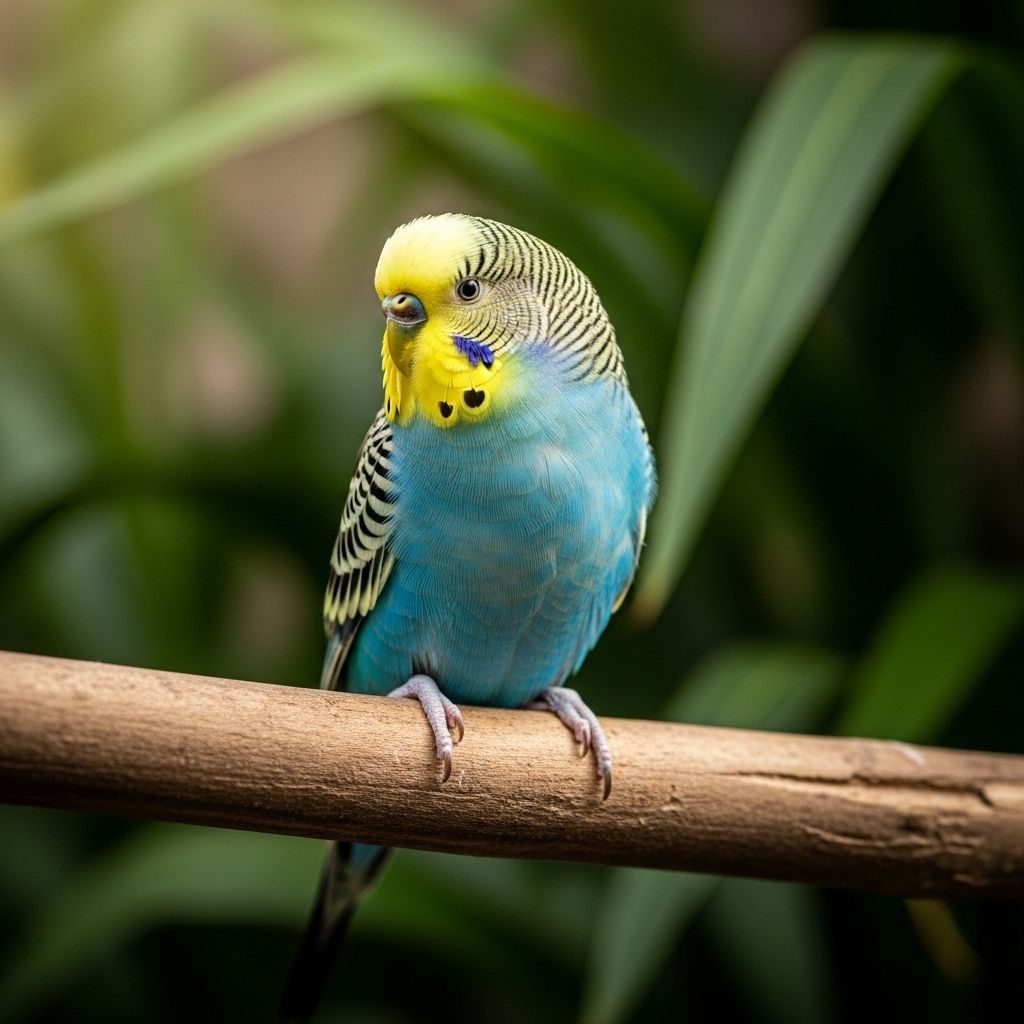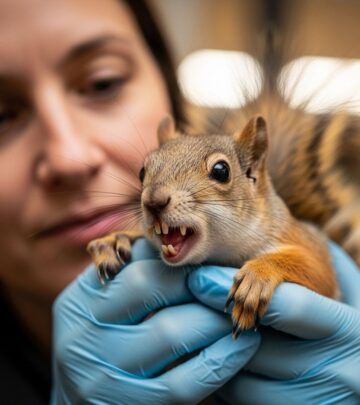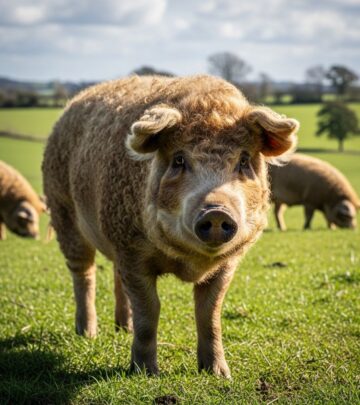Parakeet Lifespan: A Comprehensive Guide For Pet Owners
Discover what truly affects parakeet lifespan, from genetics to care, and learn how to help your feathered friend thrive for years.

Image: HearthJunction Design Team
How Long Do Parakeets Live?
Parakeets, also known as budgies, are one of the most popular pet birds worldwide. Their small size, intelligence, and cheerful personalities make them beloved companions for bird enthusiasts and first-time pet owners alike. But a common question among new and prospective parakeet owners is: How long do parakeets live?
Understanding a parakeet’s lifespan, the factors that influence it, and how to maximize their years of happiness is crucial for responsible pet ownership. Let’s explore everything you need to know about parakeet longevity, best care practices, and frequently asked questions so you can ensure your feathered friend enjoys a long and healthy life.
Parakeet Lifespan: In the Wild vs. In Captivity
| Environment | Average Lifespan | Longest Recorded |
|---|---|---|
| Wild Parakeets | 10-20+ years | Over 20 years |
| Captive Parakeets (Pets) | 7-15 years | Up to 29 years |
On average, parakeets live between 5 to 15 years as pets . Some may even exceed this range, living close to or beyond 20 years with excellent care. In the wild, parakeets can also reach 10-20 years, though natural hazards and predation do impact their survival .
A remarkable example is Charlie, a parakeet who reached 29 years of age, highlighting the potential longevity of these birds when all their needs are met .
Main Factors Affecting Parakeet Lifespan
The wide range in parakeet lifespan is influenced by a combination of environmental, genetic, and husbandry-related factors. Here’s a breakdown of the most critical elements:
- Genetics and Breeding: Parakeets from reputable breeders typically have fewer health problems and genetic issues, leading to longer lifespans compared to those from large commercial suppliers or pet stores .
- Diet: Nutrition is paramount. Parakeets fed only seed diets are prone to deficiencies and diseases. A diverse diet including pellets, fresh vegetables, fruits, grains, and supplements greatly improves health and longevity .
- Exercise and Enrichment: Regular activity helps prevent obesity and supports strong bones and a healthy heart. Birds who can fly freely in supervised spaces and have mental stimulation thrive longer .
- Veterinary Care: Routine vet checkups, early intervention for illness, and preventive care all prolong a parakeet’s life .
- Environmental Safety: Exposure to household toxins (e.g., fumes, Teflon, smoke), stress, and sudden loud noises can cause injuries or health decline .
- Cage Size and Cleanliness: Spacious, clean cages reduce stress and prevent injuries or infections. Dirty or cramped cages can drastically shorten a parakeet’s lifespan .
- Social Interaction: Parakeets are social birds. Loneliness and lack of stimulation can lead to depression, stress, and behavioral problems, affecting their overall health .
Common Health Issues That Affect Parakeet Longevity
Parakeets, like all pets, are susceptible to certain health issues that can impact their lifespan. Early detection and treatment are essential for a long, healthy life. Here are some of the most common health concerns:
- Obesity: Caused by lack of exercise and fatty diets, it can lead to hepatic lipidosis (fatty liver), heart disease, and reduced mobility .
- Malnutrition: Seed-only diets result in vitamin A and calcium deficiencies, leading to respiratory problems, weak bones, and reproductive issues .
- Infectious Diseases: Parakeets are prone to respiratory infections, psittacosis, and other contagious diseases, especially in multi-bird households or poor hygiene conditions .
- Parasites: Mites (such as Knemokotopes) can affect the skin and feathers, causing discomfort and health decline .
- Tumors and Chronic Egg Laying: These can arise due to genetics, age, or improper care .
- Trauma: Flight accidents, falls, or interactions with other household pets can result in broken bones or fatal injuries .
Life Stages of a Parakeet
Parakeets experience several life stages, each with its own needs and considerations for optimal care.
- Chick (0-4 Weeks): Completely dependent on parents for warmth and food. Proper nesting and a safe environment are essential.
- Juvenile (1-4 Months): Learning to fly, eat independently, and socialize. This is a critical period for mental and physical development.
- Young Adult (4 Months-2 Years): Reaching sexual maturity. Birds become more active, playful, and should be given opportunities to exercise and learn.
- Adult (2-7 Years): Most parakeets are in their prime. Social interaction, balanced nutrition, and enrichment are key.
- Senior (7+ Years): May show signs of aging such as less activity, subtle health issues, and changes in feather quality. Regular vet checks are especially important.
Best Practices for Maximizing Your Parakeet’s Lifespan
To help your parakeet reach their full lifespan potential, adopt these best practices:
- Purchase from a reputable, ethical breeder to ensure healthy genetics .
- Feed a complete diet: high-quality pellets, daily fresh vegetables (like leafy greens, carrots, and broccoli), limited fruit, grains, and seeds as treats .
- Provide fresh, clean water at all times and ensure no food or droppings contaminate the water dish.
- Offer daily out-of-cage exercise, safe flight time, and an enriched environment (perches, toys, puzzles).
- Schedule annual checkups with an avian veterinarian, and seek immediate care if you notice signs of illness.
- Clean the cage thoroughly at least once a week; change liners and remove uneaten food daily.
- Keep the home environment free of fumes, smoke, aerosol sprays, and dangerous plants.
- Allow for social interaction with you or another compatible parakeet to prevent loneliness.
- Watch for subtle signs of stress or illness, such as fluffed-up feathers, reduced appetite, or changes in droppings.
Special Considerations for Parakeet Care
- Avoid wing clipping: Allowing natural flight is vital for both physical and mental health. While once common, wing clipping can lead to muscle atrophy and boredom-induced behaviors .
- Predator safety: Keep the cage secure from dogs, cats, or other pets. Never leave your parakeet unattended outside its cage in an unsafe area .
- Stress Management: Place the cage in a calm, stable area of your home where your bird can see household activity without being directly in the path of constant commotion.
- Proper cage size: Bigger is always better. Allow enough room for your parakeet to stretch, climb, flap, and play without restriction .
Wild vs. Pet Parakeet: Differences in Lifespan
It’s a common misconception that pet birds always outlive their wild counterparts. While many animals live longer in captivity due to protection from predators and a steady food supply, parakeets sometimes buck this trend:
- Wild parakeets often live longer than poorly cared-for pet birds, due to better genetics and more natural exercise .
- However, a well-cared-for pet parakeet who receives veterinary care, proper diet, and enrichment can match or exceed wild lifespan potentials.
- Poor breeding practices, lack of socialization, and improper diets shorten captive lifespans.
Frequently Asked Questions (FAQs)
How long do budgies/parakeets live on average?
Pet parakeets generally live between 7 and 15 years, with some reaching and even exceeding 20 years when provided excellent care and genetics .
What is the oldest recorded parakeet?
The oldest known parakeet reached 29 years of age—a testament to the species’ potential longevity with exceptional care .
What foods help parakeets stay healthy and live longer?
A balanced diet of formulated pellets, fresh vegetables (dark leafy greens, carrots, broccoli), small amounts of fruit, and seeds/grains as occasional treats is best. Avoid all-seed diets and junk foods .
Do parakeets need to see a vet?
Yes, annual avian vet checkups and prompt treatment for illness or injury are crucial for ensuring a long, healthy life .
What are the signs my parakeet is aging?
Senior parakeets may become less active, show changes in appetite, have duller feathers, or develop health issues like arthritis or organ decline. Regular vet visits are important for senior birds.
Can parakeets live alone, or do they need a companion?
Parakeets are social by nature. While some do fine with lots of human interaction, many thrive with a same-species companion—just be sure to introduce them properly and monitor for compatibility .
Summary: Giving Your Parakeet the Longest, Happiest Life
Parakeets’ lifespans are shaped by their genetics, quality of care, environment, and owner commitment. With informed choices—an enriched environment, robust nutrition, prompt veterinary care, spacious cages, and loving social interaction—pet parakeets can reward their caretakers with years of vibrant companionship and joy.
Before bringing a parakeet home, consider the decades-long commitment these lively birds may require, and set up your home and routine for their optimal health. If you do, you will be creating the foundation for a long, happy life together.
References
Read full bio of Shinta












